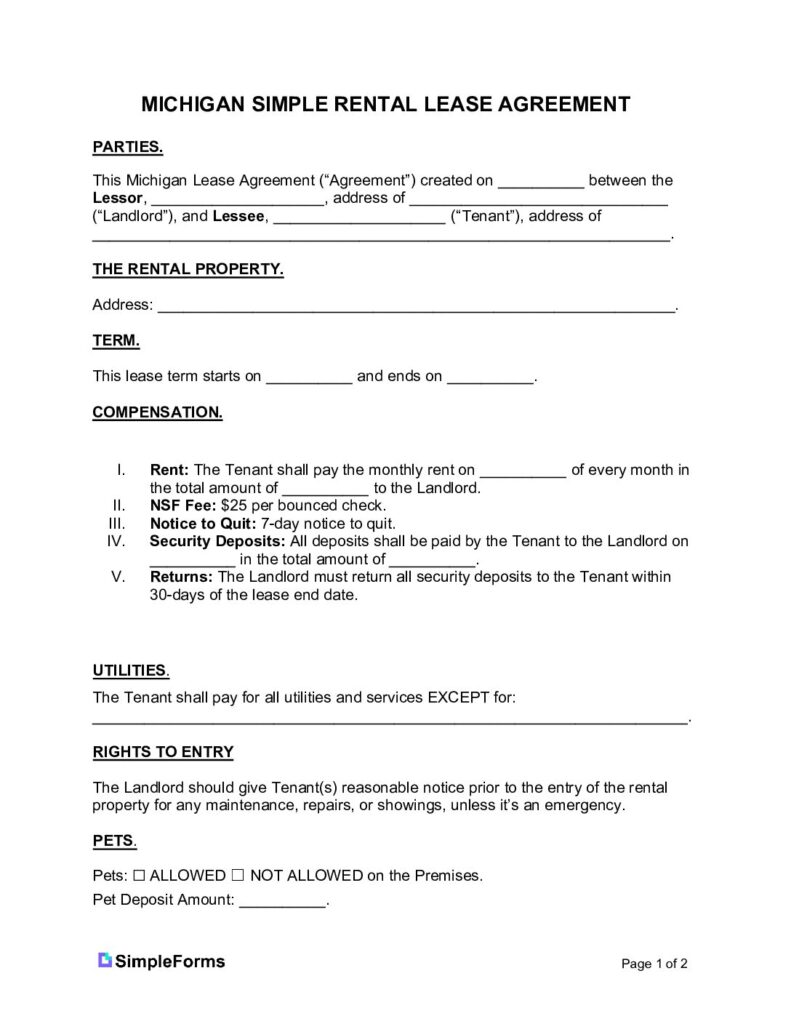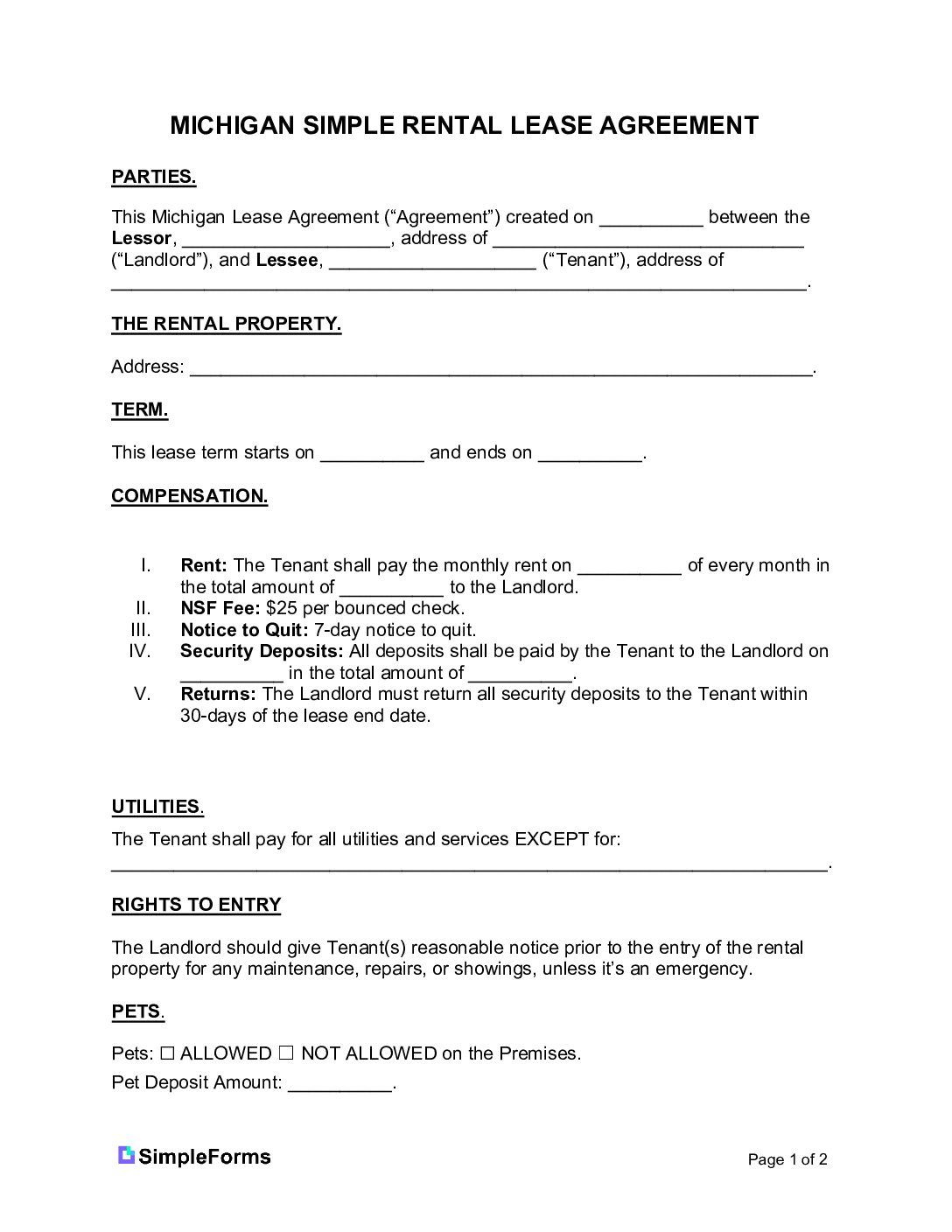Most Recent US Home Facts
- Population (2023): 334,914,895
- Median Households (2022): 125,736,353
- Median Household Income (2022): $75,149
- Owner-occupied Households (2022): 64.8%
Source: U.S. Census Bureau
Michigan Lease Agreement Must Include the Following
Required Disclosures (6)
- Domestic Violence Victims Disclosure
- Inventory Checklist
- Lead-Based Paint Disclosure
- Notice Information
- Security Deposit Receipt
Security Deposit
Return – After the Tenant vacates the property, the landlord has 30 days to return the security deposit along with an itemized list of deductions and their forwarding address.
Landlord Access
Paying Rent
Michigan Squatting Rights
What is Squatting?
Squatting, also known as “illegal occupancy” is when an individual lives on a property without the Landlord or Property Owners permission. Squatting is a form of trespassing.
Is Squatting a Crime?
Yes.
How to Avoid Potential Squatters?
Fortunately squatters cannot take ownership of someone else’s property by living on the property for 15 years. This does not dismiss the fact that squatters are an issue for property owners. If a squatter claims to have “squatters rights” property owners can tell them that Michigan has strict rules and the owner is well aware of these laws and the individual must leave the property immediately.
How to Avoid Legal Disputes?
The owner then shall ask the squatter to leave. If the Tenant does not leave the recommendation for property owner is to call the police. Under the new Michigan Law, landlords can take steps independently to remove squatters but best to have the police remove them to avoid any legal disputes.
When to hire an Attorney?
- If all the actions you have taken have not resolved your properties squatting issue it is highly recommended to consult an attorney. Do not try to handle these matters when the situation gets out of hand as you could face legal disputes.
- When pressing criminal charges for illegal trespassing or squatters.
Source: MichiganVacantProperty.org
How to Avoid Potential Scams?
- Never accept an a cash offer when renting property to Tenants.
- Make sure the Tenant completes the written agreement form as oral agreements as not as secure.
- Meet the Tenents in-person at least once before putting an agreement in writing.

